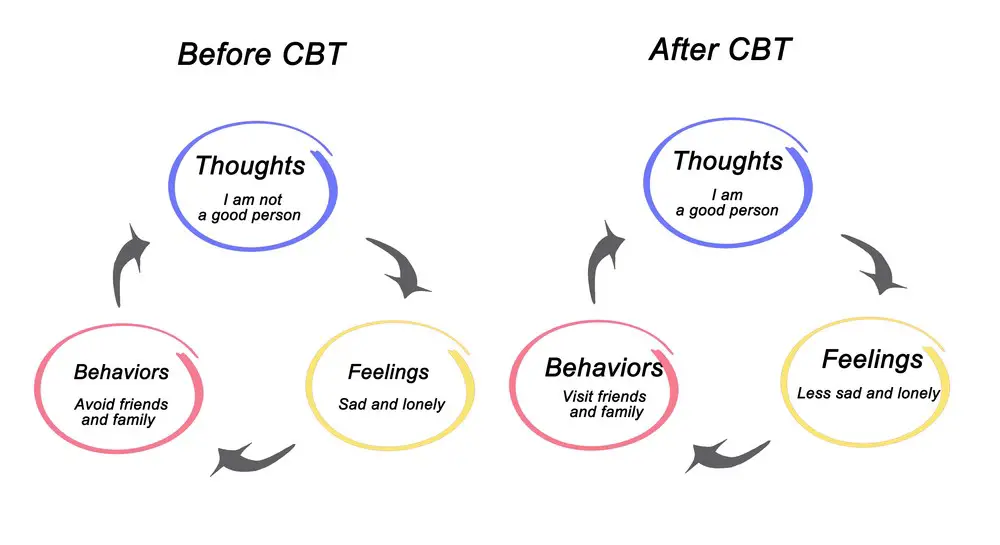Compulsive lying, also known as pathological lying, is a complicated behavior characterized by the persistent and habitual act of telling lies, often without an apparent reason or obvious benefit. This phenomenon can seriously affect relationships, personal and professional life, and the individual’s mental well-being. Understanding the root causes and potential therapeutic approaches for compulsive lying is essential for effectively addressing and supporting those impacted by this condition.
There are several common drivers behind compulsive lying, ranging from past trauma to an attempt to boost self-esteem. It is important to consider the presence of co-occurring mental health conditions, such as personality disorders or addiction, which may contribute to the development of compulsive lying. A comprehensive diagnostic process and tailored treatment plans play a crucial role in managing this pattern of behavior and mitigating its negative impact on the liar and those around them.
Key Takeaways
- Compulsive lying is a complex behavior with various causes and potential co-occurring mental health conditions.
- Accurate diagnosis and tailored therapeutic approaches are essential for effectively addressing compulsive lying.
- The impact of compulsive lying can significantly affect the individual and their relationships.
 Understanding Compulsive Lying
Understanding Compulsive Lying
Defining Compulsive Lying
Compulsive lying, also known as pathological or pseudologia fantastica, is characterized by an individual’s uncontrollable urge to lie, even when there is no apparent benefit or need. These individuals may find it difficult to stop lying, despite the potential negative consequences it may bring upon themselves and others around them.
Different Types of Lying
White lies are relatively harmless untruths, often told to protect someone’s feelings or avoid uncomfortable situations. On the other hand, compulsive or pathological lying differs from white lies, as the lies can become more intricate and less harmless over time.
- Compulsive Lying: Individuals who compulsively lie may not even know they’re lying. They often lie habitually in response to stress, pressure, or uncomfortable situations – even when there’s no apparent benefit.
- Pathological Lying: This term is often used synonymously with compulsive lying. However, it can also be understood as a more severe form of lying, where the lies told are more fantastical and implausible, reflecting a disconnect from reality. Pathological liars may also weave elaborate stories and believe their lies, making distinguishing between truth and fiction difficult.
While compulsive lying can negatively impact relationships, trust, and emotional well-being, it is essential to remember that individuals who exhibit this behavior may not be doing so out of malicious intent. Instead, they may not have control over their urges to lie. Identifying and understanding the various forms of lying can be the first step in encouraging individuals to seek professional help and support for this issue.
Common Causes of Compulsive Lying
Psychological Factors
Compulsive lying can stem from various psychological factors. Mental health conditions such as borderline personality disorder and narcissistic personality disorder often involve manipulation and deception as part of their symptoms. Individuals with these conditions might resort to compulsive lying to maintain control or a sense of superiority.
Anxiety and low self-esteem are common psychological factors contributing to compulsive lying. People may lie to avoid confrontation, criticism, or rejection. This pattern of avoiding uncomfortable situations can develop into a habit over time.
Additionally, compulsive lying can be an addictive behavior, similar to substance abuse. People who struggle with addiction may use lying as a coping mechanism, creating a cycle that can be difficult to break.
Environmental Influences
Environmental factors during one’s childhood can also contribute to the development of compulsive lying. A turbulent or unstable environment during the early years may lead to lasting emotional and psychological scars, causing a person to resort to lying as a form of self-protection or manipulation.
Trauma experienced during childhood can also play a significant role in shaping a person’s tendency to lie compulsively. Children who have been through traumatic experiences may use lying to escape reality or exert control over their environment, which can continue into adulthood.
In conclusion, compulsive lying can be attributed to various causes, including psychological and environmental factors. Mental health conditions, anxiety, low self-esteem, and childhood experiences are just a few potential contributors to this complex issue. Understanding these factors can help develop therapeutic interventions and support systems for those struggling with compulsive lying.

Co-Occurring Mental Health Conditions
Borderline Personality Disorder
People with Borderline Personality Disorder (BPD) may struggle with unstable emotions and self-image. This can lead to impulsive actions and turmoil in relationships. They may resort to lying to protect themselves from perceived abandonment or rejection. Treatment for BPD often involves dialectical behavior therapy, which helps individuals learn healthier coping strategies and improve interpersonal skills.
Obsessive-Compulsive Disorder
Obsessive-Compulsive Disorder (OCD) is characterized by persistent, unwanted thoughts (obsessions) and repetitive behaviors (compulsions). Individuals with OCD may compulsively lie as a byproduct of their obsessions and compulsions that are often linked to anxiety and fear. Treatment for OCD typically includes a combination of cognitive-behavioral therapy and medication.
Narcissistic Personality Disorder
Narcissistic Personality Disorder (NPD) is characterized by an inflated sense of self-importance and a lack of empathy for others. Individuals with NPD may lie to maintain their grandiose self-image, manipulate others, or control situations. Therapy for NPD often focuses on helping individuals develop empathy and self-awareness while addressing underlying issues such as insecurity.
Antisocial Personality Disorder
Antisocial Personality Disorder (ASPD) is a mental health condition characterized by a pattern of disregard for the rights and feelings of others. It may involve deceitful behavior, impulsivity, and a lack of remorse. Individuals with ASPD may lie for personal gain, to exploit others, or to avoid consequences. Treatment for ASPD is complex, often involving a combination of therapy, medication, and social support.
Bipolar Disorder
Bipolar Disorder is a mental health condition characterized by alternating elevated mood (mania) and depressive episodes. During manic episodes, individuals may engage in impulsive, deceitful behavior. Similarly, during depressive episodes, they might lie to avoid social interaction or to cover up feelings of shame. Treatment for Bipolar Disorder typically includes a combination of therapy and medication to help stabilize mood changes.
 Impact of Compulsive Lying
Impact of Compulsive Lying
On Relationships
Compulsive lying can severely damage relationships, undermining the foundation of trust and honesty. When someone consistently lies, it becomes difficult for others to believe anything they say. This can lead to a breakdown in communication and a growing sense of distance between individuals.
In some cases, compulsive liars may lie for personal gain, making them appear manipulative and self-interested. These lies can strain relationships further, as they create imbalances in power dynamics and erode the sense of connection between people.
The consequences of compulsive lying in relationships might include:
- Loss of trust and respect
- Communication breakdown
- Feelings of betrayal
- Difficulty in forming new relationships
 On Emotional Health
On Emotional Health
Compulsive lying can also profoundly impact the emotional well-being of those who lie and those affected by their lies. It can lead to distress, guilt, and shame for the person experiencing compulsive lying, as they may be aware of the harm their dishonesty causes but unable to stop.
Emotions commonly associated with compulsive lying include:
- Anxiety
- Guilt
- Shame
- Fear of being discovered
Those who interact with compulsive liars may experience confusing emotions as their sense of reality is repeatedly challenged. Such feelings can contribute to overall emotional distress and dissatisfaction in the relationship, further exacerbating the negative effects of compulsive lying.
 Diagnosing Compulsive Lying
Diagnosing Compulsive Lying
A mental health professional will carefully evaluate the individual’s behavior and history in diagnosing compulsive lying. They will look for patterns of persistent lying, which often indicates a pathological liar. These individuals may not have control over their lives and may be driven by fear, self-esteem issues, or a desire for attention.
Key symptoms of compulsive lying include an inability to control lying behavior, lying for no apparent reason or benefit, and having a history of interpersonal conflict due to dishonesty. Moreover, pathological liars often create elaborate and complex stories, which may be difficult to keep consistent and show no signs of guilt when confronted about their dishonesty.
One method of evaluation is observing the individual’s level of self-esteem. It has been suggested that pathological liars may have low self-esteem, leading them to create falsehoods to feel better about themselves. Alternatively, they may suffer from inflated self-esteem that fuels their need to deceive others to maintain a certain image.
Another aspect to consider when diagnosing compulsive lying is assessing the individual’s fear response. It has been proposed that pathological liars may be driven to lie due to the fear of negative social consequences or losing personal relationships. In such cases, their lying behavior may act as a defense mechanism to avoid these unwanted outcomes.
In conclusion, diagnosing compulsive lying involves observing patterns of dishonest behavior, analyzing the individual’s self-esteem and fear responses, and understanding the reasons behind their lying. A mental health professional will consider all these factors to determine if a person is a pathological liar and provide appropriate treatment options.
Therapeutic Approaches to Compulsive Lying
 Cognitive Behavioral Therapy
Cognitive Behavioral Therapy
Cognitive Behavioral Therapy (CBT) is a widely-used treatment for compulsive lying. This approach identifies and changes distorted thoughts and beliefs that lead to compulsive lying. It works by helping individuals become more aware of their thoughts and how these thoughts influence their behaviors. The therapist and patient work together to develop coping skills and strategies to counteract the compulsive lying behavior. This may include learning to recognize triggers for lying, practicing assertiveness, and building self-esteem.
Psychotherapy
Psychotherapy is another treatment option for compulsive lying. In this approach, the therapist helps the individual explore the underlying emotional and psychological factors contributing to their dishonesty. These may include unresolved past traumas, feelings of shame, or a need for validation and acceptance. Through the therapeutic process, the individual gains insight into their behavior and develops healthier methods for coping with their emotions. Establishing trust in the therapeutic relationship is essential as it could serve as a model for healthy communication and boundaries in other relationships.
Behavioral Therapy
Behavioral therapy focuses on modifying problematic behavior by implementing specific techniques and interventions. In the case of compulsive lying, the therapist works with the individual to set achievable goals for reducing dishonesty in their daily life. They may use techniques such as reinforcement or punishment to encourage honesty or discourage lying. Additionally, the therapist can help the patient develop and practice new, healthier behaviors that serve as alternatives to lying, such as openly discussing their feelings or seeking professional help.
It is crucial to work closely with a mental health professional throughout the therapy process to ensure the most effective treatment plan is tailored to the individual’s needs. With patience, perseverance, and the support of loved ones, individuals struggling with compulsive lying can learn to navigate their emotions, build trust in their relationships, and develop healthier coping mechanisms.
Dealing with a Compulsive Liar
Dealing with a compulsive liar can be challenging and emotionally exhausting. Understanding the underlying reasons for compulsive lying and finding support for yourself while navigating these relationships is essential. This section will discuss two key strategies for dealing with a compulsive liar: seeking professional help and setting boundaries.
Seeking Professional Help
One of the most effective ways to deal with a compulsive liar is to encourage them to seek professional help. A trained therapist can provide insight into the root causes of compulsive lying and develop a tailored treatment plan for the individual. A mental health professional can also help the liar address related issues, such as building trust and improving relationships.
- Identify the need for help: Recognize the signs of compulsive lying and explain to the individual the need for intervention.
- Research therapists: Look for professionals specializing in compulsive lying or related issues such as addiction or personality disorders.
- Support the liar in therapy: Encourage the individual to attend therapy sessions regularly and provide a supportive environment.
Setting Boundaries
Establishing clear boundaries is another crucial step in dealing with a compulsive liar. Setting limits can help protect your emotional well-being and maintain a sense of control over your interactions with the liar.
- Define your boundaries: Determine what behavior is acceptable and what is not in your relationship with the compulsive liar. Be clear and specific about these boundaries.
- Communicate your boundaries: Convey your limits to the individual and explain their consequences. This can involve addressing specific instances of lying or discussing broader behavior patterns.
- Enforce your boundaries: If the compulsive liar violates your boundaries, take action to enforce the consequences you’ve outlined. This may include distancing yourself from the individual or seeking support from friends, family, or professionals.
- Review and adjust: Periodically review your boundaries and make adjustments as needed. Continue to communicate and enforce them to ensure a healthy relationship dynamic.
Conclusion
Compulsive lying is a complex and often misunderstood behavior. It can have a significant impact on individuals and their relationships with others. Maintaining a confident, knowledgeable, neutral, and clear tone, this section will briefly discuss the importance of addressing compulsive lying and seeking professional help.
Individuals who suffer from compulsive lying often struggle to consistently tell the truth, even when there are no discernible advantages to lying. This behavior can stem from various factors, such as emotional issues, personality disorders, or traumatic experiences. It’s crucial for people who exhibit this behavior to recognize and address the underlying issues.
Professional therapy can be highly beneficial for those who struggle with compulsive lying. Therapists can employ various techniques and strategies to help individuals better understand the motives behind their lying and develop healthier communication habits. Moreover, therapy can also assist in rebuilding trust and promoting self-awareness which can lead to significant improvements in the individual’s everyday life.
In conclusion, compulsive lying may often be a symptom of deeper emotional or psychological issues. Seeking the guidance of a professional therapist can facilitate personal growth, improved self-awareness, and the development of healthier communication habits. Acknowledging and addressing compulsive lying is a necessary step towards improving overall mental health and well-being.
Frequently Asked Questions
What are the main causes of compulsive lying?
Compulsive lying, known as pseudologia fantastica, can be attributed to various factors. Some people may lie compulsively due to low self-esteem or a desire for attention, approval, or control. Others might develop the habit in response to a traumatic event or upbringing. It is essential to note that the causes can differ for each individual and should be considered during the therapeutic process.
Can therapy help someone with compulsive lying?
Yes, therapy can be beneficial in helping someone with compulsive lying. For instance, cognitive-behavioral therapy (CBT) can help individuals identify their lying patterns and learn healthier coping mechanisms. Working with a therapist can also help patients explore the underlying causes of compulsive lying, promoting personal growth and self-awareness.
What is the difference between a compulsive liar and a pathological liar?
Compulsive and pathological liars engage in dishonest behavior, although their motives and patterns may differ. Compulsive liars often feel a strong urge to lie almost impulsively, whereas pathological liars lie to manipulate or deceive others for personal gain or pleasure. Understanding the distinctions can make it easier for professionals to tailor their therapeutic approaches.
Is compulsive lying a symptom of any mental disorders?
Compulsive lying can be a symptom of some mental disorders, such as borderline personality disorder, narcissistic personality disorder, or antisocial personality disorder. It can also be associated with impulse control disorders or histories of trauma. However, not all compulsive liars have a mental disorder, and not all individuals with these disorders engage in compulsive lying.
What are the common traits of compulsive liars?
Common traits of compulsive liars may include low self-esteem, a need for attention or approval, impulsivity, a history of trauma or abuse, difficulties with interpersonal relationships, and a tendency to create elaborate or fantastical stories. These traits can vary from person to person and may not be present in all compulsive liars.
How can one stop compulsive lying?
To stop compulsive lying, individuals must first recognize and acknowledge their lying behavior. Working with a therapist, they can explore the underlying causes of compulsive lying, develop healthier coping strategies, and build self-awareness. Building a strong support system and engaging in activities that promote positive self-esteem and emotional well-being can also contribute to overcoming compulsive lying.
Jacob Maslow
Navigating complex emotional terrain, I’m Jacob Maslow, a seasoned therapy participant using Lexapro as an ally in my mental health journey. Over the years, my experiences have been intensified by challenging encounters with an ex-partner whose narcissistic tendencies have led to distressing familial alienations and an ongoing court battle over custody rights. These struggles, paired with the solace I find in my daily long walks, deeply inform my writings. Through articles focused on mental health and the challenges of navigating narcissistic relationships, I aspire to support and guide others in similar situations. I’m also dedicated to aiding individuals through my legal site, addressing the heart-wrenching issues of custody disputes and parental weaponization. Remember, overcoming mental health hurdles is possible with the right tools and mindset.
- The Stress-Free Path to Mastering Conversations: Essential Techniques Unveiled - February 12, 2024
- The Burnout Epidemic: Why We’re All Feeling Overwhelmed and How to Cope - February 9, 2024
- How to Live a Peaceful Life - February 9, 2024
This site contains affiliate links to products. We will receive a commission for purchases made through these links.


 Understanding Compulsive Lying
Understanding Compulsive Lying Impact of Compulsive Lying
Impact of Compulsive Lying On Emotional Health
On Emotional Health Diagnosing Compulsive Lying
Diagnosing Compulsive Lying Cognitive Behavioral Therapy
Cognitive Behavioral Therapy

